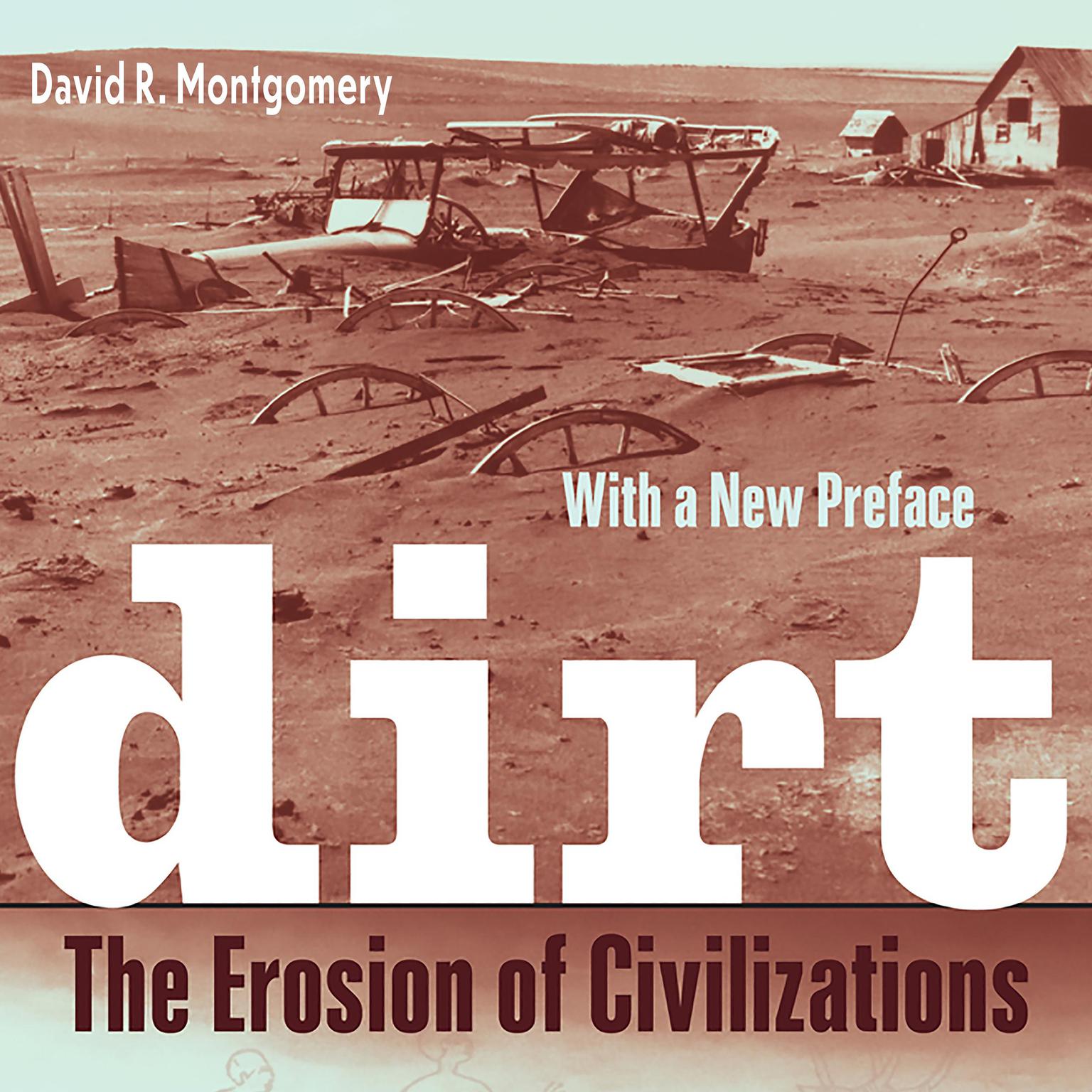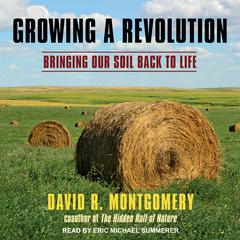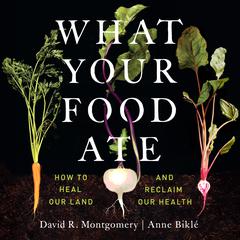 Play Audiobook Sample
Play Audiobook Sample
Dirt: The Erosion of Civilizations Audiobook
 Play Audiobook Sample
Play Audiobook Sample
Quick Stats About this Audiobook
Total Audiobook Chapters:
Longest Chapter Length:
Shortest Chapter Length:
Average Chapter Length:
Audiobooks by this Author:
Publisher Description
Dirt, soil, call it what you want, it's everywhere we go. It is the root of our existence, supporting our feet, our farms, our cities. This fascinating yet disquieting audiobook finds, however, that we are running out of dirt, and it's no laughing matter. An engaging natural and cultural history of soil that sweeps from ancient civilizations to modern times, Dirt: The Erosion of Civilizations explores the compelling idea that we are, and have long been, using up Earth's soil. Once bare of protective vegetation and exposed to wind and rain, cultivated soils erode bit by bit, slowly enough to be ignored in a single lifetime but fast enough over centuries to limit the lifespan of civilizations.
A rich mix of history, archaeology and geology, Dirt traces the role of soil use and abuse in the history of Mesopotamia, Ancient Greece, the Roman Empire, China, European colonialism, Central America, and the American push westward. We see how soil has shaped us and we have shaped soil as society after society has risen, prospered, and plowed through a natural endowment of fertile dirt. David R. Montgomery sees in the recent rise of organic and no-till farming the hope for a new agricultural revolution that might help us avoid the fate of previous civilizations.
Produced and published by Echo Point Books & Media, an independent bookseller in Brattleboro, Vermont. ©2012 David R. Montgomery (P)
Download and start listening now!
"Wherever I've lived in this country I've noticed the effects of erosion. It was particularly evident in Georgia where the red Georgia clay is everywhere evident. For awhile I couldn't figure out how in the world they ever grew cotton on this soil. I then had the good fortune to rent a small farm where there was a small plot of the original soil. Amazing stuff - black, light fluffy and very fertile, also very fragile and once tilled very prone to wash away in the very heavy Georgia rains. The prairie another interest of mine and the site of what has been called the second worst environmental calamity in the history of civilization - the dust bowl, was another rather large example of our failure to subdue nature. I remember traveling through Amarillo, Texas in the early 70's and wondering what in the world happened here. The landscape looked like what would be left of the world after an atomic war. This book explains it all and perhaps gives us a preview of what life may hold for the human race after we burn up all the oil and soil in our beloved automobiles."
— Jim (4 out of 5 stars)
Dirt Listener Reviews
-
" Very informative. Actually at times too informative; he gives ten or twenty examples for every point he wants to make. But I forgive him - his argument is that humans throughout history and across a variety of different locations have abused their soil and that this has led to the downfall of their respective civilizations, so it makes sense that he needs a lot of evidence. "
— Rufo, 2/19/2014 -
" A fascinating history of the spread of agriculture across the planet and its affect on the soil. Farming could be described as generations of humans depleting the soil of its nutrients and moving on. It has an excellent history of farming techniques across the globe, from the earliest methods in the now barren Fertile Crescent, to livestock based farming, terraced farming to conserve water/topsoil, through to our current petroleum-based industrial agrochemical system, and back to so-called alternative agroecology (organic farming). This book is long on statistics and can be a bit dry at times. The last chapter is worth the effort. It ties together where we're headed and what can be done to solve our problems in a sustainable way. "
— Andy, 2/12/2014 -
" I read this book as part of a soils class in science. The book did a good job at conveying the importance of soils to a civilisation. I would certainly suggest this book to all who can no longer simply use the world dirt to describe to soil. "
— Dan, 1/27/2014 -
" Fantastic, I'm going to own it, and it really puts agriculture in perspective. The basics are don't plow slopes, build your soil, and that dams destroy riverbeds. I'm looking forward to rereading it. "
— Will, 1/6/2014 -
" Maybe dirt shouldn't be this interesting, but it is. Its hard to characterize the layer beneath my feet simply as 'dirt' (that's prob the point.) "
— Alexander, 12/5/2013 -
" who knew dirt could be so interesting? it's critical, and we never think about it... "
— Regina, 11/1/2013 -
" Very interesting to think of human history in relation to the dirt that civilizations were built upon. "
— Elizabeth, 7/24/2013 -
" a must read for everybody interested in good stewardship of the land . The erosion of good soil is directly linked to the disappearance of entire civilisation. "
— Loic, 10/15/2012 -
" First couple of the chapters overstretch the science supporting his central idea (I think), but I enjoyed the second two-thirds of the book more. Great book with a lesson that more people ought to think on. "
— Lauren, 8/13/2012 -
" Almost a text book ... but not quite. And not quite readable as a science narrative for non-scientists. "
— Victoria, 4/7/2012 -
" Very convincing. "
— Anne, 3/29/2012 -
" Interesting topic, good points. I found the writing to be overly repetitive and I ended up skimming a lot. I think that this book could be condensed to half of its length. "
— Natalie, 11/5/2011 -
" Intersting - tells human history in terms of soil erosion. "
— Kathely, 9/23/2011 -
" Maybe dirt shouldn't be this interesting, but it is. Its hard to characterize the layer beneath my feet simply as 'dirt' (that's prob the point.) "
— Alexander, 7/27/2011 -
" Fantastic, I'm going to own it, and it really puts agriculture in perspective. The basics are don't plow slopes, build your soil, and that dams destroy riverbeds. I'm looking forward to rereading it. "
— Will, 7/19/2011 -
" I just could not get into this one and skimmed most of it. The idea is interesting--how geography and our use of the land contributed to the rise and fall of civilizations over time--but the execution is quite dry and not as engaging as I would have hoped. <br/> "
— Patty, 11/5/2009 -
" This is a great book - well researched and yet thoroughly engaging - which quite the feat for nonfiction. I would recommend it to just about anyone. <br/> <br/>The author's writing style can be repetitive at times, but for a scientist who is playing author, I think he does a very good job. "
— Chris, 11/1/2009 -
" who knew dirt could be so interesting? it's critical, and we never think about it... "
— Regina, 4/29/2009
About David R. Montgomery
David R. Montgomery is a professor of geomorphology at the University of Washington.
About Tim Lundeen
Tim Lundeen’s career in audio books has encompassed most every aspect of the business. He has narrated both fiction and non-fiction across multiple genres; and his ongoing experience in the recording studio as producer, director, engineer, and editor has equipped him with the expertise needed in grasping the nuances of great story-telling. He and his family live near Chicago.





